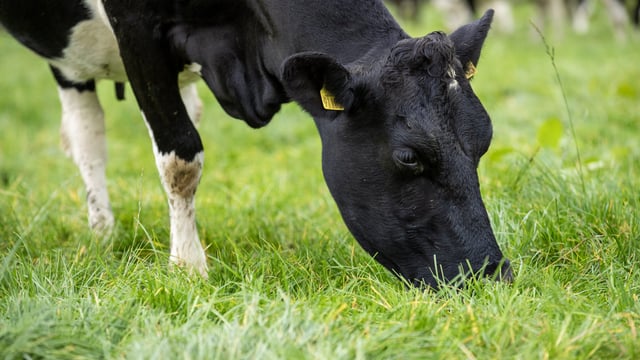Sponsored Article

Sponsored Article
Smarter breeding decisions start with milk pregnancy testing
Sponsored Article

The IDEXX Alertys Milk Pregnancy Test is a laboratory-based diagnostic tool, designed to detect pregnancy-associated glycoproteins (PAGs) in milk samples from cows.
These glycoproteins are produced only in the presence of an embryo or foetus, making them reliable indicators of pregnancy.
- Early detection: The test can confirm pregnancy as early as 28 days post-breeding in cows and at the same time 60 days post last calving in cows to confirm ongoing pregnancy status.
- High accuracy: Studies have demonstrated the test's high sensitivity and specificity. In cows the sensitivity is 98.7%, which indicate the test's reliability in correctly identifying pregnant and non-pregnant animals.
- Convenient sample collection: Milk samples can be tested from routine milk recording samples, eliminating the need for additional animal handling. In turn, this enhances workflow efficiency and reduces stress on animals. Alternately, specific milk pregnancy test kits can be purchased and testing can be done at any time.
- Enhanced reproductive management: By identifying non-pregnant cows early, farmers can make informed decisions about breeding strategies.
- Cost-effective monitoring: The test offers a cost-effective method for pregnancy detection at €4 per sample.
- Integration into veterinary programmes: The test can be incorporated into veterinary-led fertility programmes, providing a non-invasive and efficient tool for monitoring pregnancy status as part of comprehensive herd health management.
Fran Allen operates a 100% artificially inseminated (AI) autumn-spring calving dairy farm in Co. Kildare.
Fran said: “We have been using the milk pregnancy tests – I simply identify a list of cows for preg testing and give the list to my milk recording technician.
"The test allows me to focus on cows that come back empty and actions can be taken on them. I wouldn’t be without it to be honest.”
Genocells is a groundbreaking DNA-based technology that allows dairy farmers to determine individual somatic cell counts (SCC) by analysing a single bulk tank milk sample.
Genocells works by extracting the DNA from the somatic cells in the milk and comparing the genotype of this extracted DNA to the recorded genotype of the cows contributing milk to the bulk tank.
As somatic cells are the only milk components that contain DNA, the percentage of DNA that each cow contributes to the overall DNA volume in the bulk tank is equivalent to the percentage of somatic cells that each cow contributes to bulk tank SCC.
Individual SCCs are then calculated using the percentage cellular responsibility, the percentage of the milk volume that the cow contributed to the tank (calculated using milk recording yields), and the bulk tank SCC result.
Genocells is available to herd who are fully genotyped, are completing at least four milk recordings a year and are members of ICBF HerdPlus.
Sponsored Article






